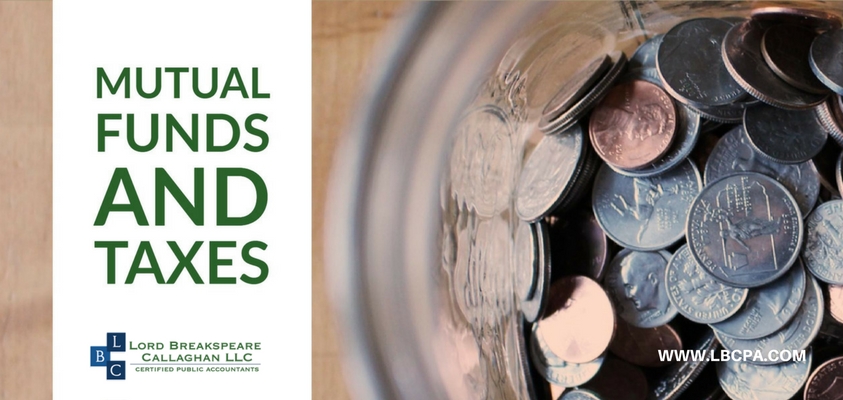LBCPA News 
Click here to go back
MUTUAL FUNDS AND TAXES

Many people overlook taxes when planning their mutual fund investments. But you’ve got to handle these valuable assets with care. Here are some tips to consider.
Avoid year-end investments
Typically, mutual funds distribute accumulated dividends and capital gains toward the end of the year. But don’t fall for the common misconception that investing in a fund just before a distribution date is like getting “free money.”
True, you’ll receive a year’s worth of income right after you invest. But the value of your shares will immediately drop by the same amount, so you won’t be any better off. Plus, you’ll be liable for taxes on the distribution as if you had owned your shares all year.
You can get a general idea of when a particular fund anticipates making a distribution by checking its website periodically. Also make a note of the “record date” — investors who own fund shares on that date will participate in the distribution.
Invest in tax-efficient funds
Actively managed funds tend to be less tax efficient. They buy and sell securities more frequently, generating a greater amount of capital gain, much of it short-term gain taxable at ordinary income rates rather than the lower, long-term capital gains rates.
Consider investing in tax-efficient funds instead. For example, index funds generally have lower turnover rates. And “passively managed” funds (sometimes described as “tax managed” funds) are designed to minimize taxable distributions.
Another option is exchange-traded funds (ETFs). Unlike mutual funds, which generally redeem shares by selling securities, ETFs are often able to redeem securities “in kind” — that is, to swap them for other securities. This limits an ETF’s recognition of capital gains, making it more tax efficient.
This isn’t to say that tax-inefficient funds don’t have a place in your portfolio. In some cases, actively managed funds may offer benefits, such as above-market returns, that outweigh their tax costs.
Watch out for reinvested distributions
Many investors elect to have their distributions automatically reinvested in their funds. Be aware that those distributions are taxable regardless of whether they’re reinvested or paid out in cash.
Reinvested distributions increase your tax basis in a fund, so track your basis carefully. If you fail to account for these distributions, you’ll end up paying tax on them twice — once when they’re paid and again when you sell your shares in the fund.
Fortunately, under current rules, mutual fund companies are required to track your basis for you. But you still may need to track your basis in funds you owned before 2012 when this requirement took effect, or if you purchased units in the fund outside of the current broker holding your units.
Do your due
Tax considerations should never be the primary driver of your investment decisions. Yet it’s important to do your due diligence on the potential tax consequences of funds you’re considering — particularly for your taxable accounts.
Sidebar: Directing tax-inefficient funds into nontaxable accounts
If you invest in actively managed or other tax-inefficient funds, ideally you should put these holdings in nontaxable accounts, such as a traditional IRA or 401(k). Because earnings in these accounts are tax-deferred, distributions from funds they hold won’t have any tax consequences until you withdraw them. And if the funds are held in a Roth account, those distributions will escape taxation altogether.
If you have any questions regarding accounting, domestic taxation, international taxation, IRS representation, U.S. tax implications of Real Estate transactions or financial statements, please give us a call at 305-274-5811.
Source: Thomson Reuters






